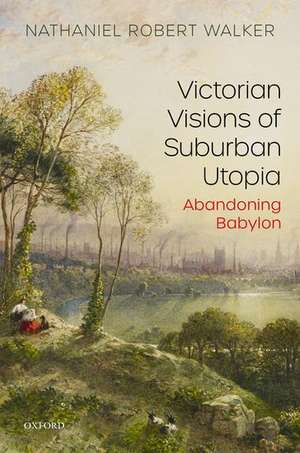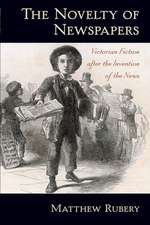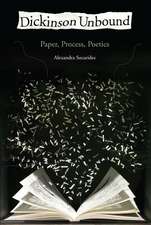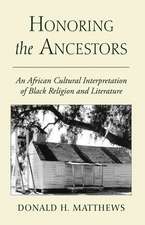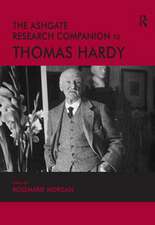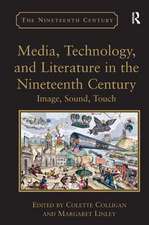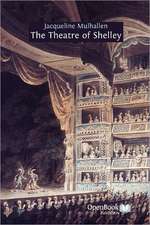Victorian Visions of Suburban Utopia: Abandoning Babylon
Autor Nathaniel Robert Walkeren Limba Engleză Hardback – 26 noi 2020
| Toate formatele și edițiile | Preț | Express |
|---|---|---|
| Paperback (1) | 257.82 lei 10-16 zile | |
| OUP OXFORD – 28 feb 2024 | 257.82 lei 10-16 zile | |
| Hardback (1) | 855.38 lei 31-37 zile | |
| OUP OXFORD – 26 noi 2020 | 855.38 lei 31-37 zile |
Preț: 855.38 lei
Preț vechi: 1151.73 lei
-26% Nou
Puncte Express: 1283
Preț estimativ în valută:
163.67€ • 170.89$ • 135.46£
163.67€ • 170.89$ • 135.46£
Carte tipărită la comandă
Livrare economică 25-31 martie
Preluare comenzi: 021 569.72.76
Specificații
ISBN-13: 9780198861447
ISBN-10: 0198861443
Pagini: 574
Ilustrații: 138 Illustrations
Dimensiuni: 166 x 36 x 241 mm
Greutate: 0 kg
Editura: OUP OXFORD
Colecția OUP Oxford
Locul publicării:Oxford, United Kingdom
ISBN-10: 0198861443
Pagini: 574
Ilustrații: 138 Illustrations
Dimensiuni: 166 x 36 x 241 mm
Greutate: 0 kg
Editura: OUP OXFORD
Colecția OUP Oxford
Locul publicării:Oxford, United Kingdom
Recenzii
Winner of the 2021 Publication Award for Best Book from SESAH (the Southeast Chapter of the Society of Architectural Historians), Honorable Mention from the Kenneth Jackson Award for Best Book Published on North American Urban History in 2020, and Shortlisted in 2022 for the Alice Davis Hitchcock Medallion of the Society of Architectural Historians Great Britain
In this prodigious book, architectural historians and urbanists alike will find a familiar cast of characters such as Ebenezer Howard, Frank Lloyd Wright, and Jacob Riis. Yet Walker's contribution lies in his efforts to recontextualize these figures alongside utopian science fiction of that period... Walker situates these writings and their authors within cities themselves, locating a suburban yearning within the dense squalor of places such as London, Manchester, and New York. Victorian Visions operates at the intersection of Victorian literary history and architectural history. Walker treats his evidence, which ranges from romance novels to political essays, as a form of architectural documentation, deploying the spatial and material tools of built environment scholars to understand the physical implications of science-fiction texts.
Walker's mastery of these essential writings is impressive, replete with thorough analysis ... this well-written, authoritative study will appeal to social and urban historians.
In this prodigious study of architecture, literature and dreams, Nathaniel Walker takes his readers on a marvel-filled tour of Victorian Visions of Suburban Utopia and shows that the line dividing "real" architecture and fantasy is thin indeed. Walker reviews a plethora of strange, wonderful, and terrifying texts, images, and buildings that represent the dreams of utopian visionaries. It is in this discourse of dreams that he finds the DNA of the Anglo-American suburb and of Modernism itself, even as he also shows us how the urge to pursue "Jerusalem" while fleeing "Babylon" has pervaded the whole history of architecture and urbanism. There can be little doubt that his findings will inspire and inform ongoing conversation about the role of utopian and dystopian fantasy in the design and construction of our buildings and cities.
Victorian Visions...is an astoundingly thorough excavation of the 'prehistory of the modern suburb' in nineteenth century, Anglo-American utopian literature. Following in the footsteps of Leo Marx's The Machine in the Garden... The contribution of Victorian Visions is its exploration of a century of visioning, prior to the twentieth-century homeownership, renewal, redlining, racial zoning, land use zoning, and transportation policies that realized the pastoral vision... In exploring the realm of fantasy fiction, it effectively recaptures...the horror and urgency with which Victorian, middle-class Anglo-Saxon Britons and Americans viewed their cities. In so doing, it helps to explain why the 20th century descendants of these fantasy fiction readers and authors so enthusiastically pursued destructive policies of renewal, selective disinvestment, slum clearance, apartheid, and highway building.
This is a book that was waiting to be written. The fundamental point of Victorian Visions of Suburban Utopia may seem obvious, but never before has it been worked out so thoroughly, on this scale or in such depth, across disciplines and in both Britain and America (and even further afield). Better still, it is written with enthusiasm and clarity, and generously illustrated.
Walker's study excels in its interdisciplinary approaches, and scholars in a wide array of fields should benefit by it, including nineteenth-century American literature, Victorian British literature, science fiction, utopian studies, and historians of urban planning and architecture.
Nathaniel Robert Walker's detailed and absorbing Victorian Visions of Suburban Utopia...works painstakingly to help us understand the rise of the suburbs in the first place and, more particularly, the language of utopian possibility associated by some reformers with peripheral, suburban, and exurban spaces....Walker is first-rate at bringing into productive conversation an enormous range of well-known and less-familiar texts, spanning centuries and continents. New turning points emerge in a long tradition of urban and suburban literary engagement....a capacious, erudite, and fascinating examination of utopian discourse.
In his lavishly illustrated Victorian Visions of Suburban Utopia: Abandoning Babylon, Nathaniel Robert Walker reconstructs and analyses the "ideas, longings, and values that gave rise to the modern suburb" in Britain and the United States ... It thus would have further enhanced the appeal of this fascinating book to learn more about the relationship between the contemporary fictional visions Walker so thoroughly and extensively documents and the already existing suburban landscapes of the nineteenth century.
In this prodigious book, architectural historians and urbanists alike will find a familiar cast of characters such as Ebenezer Howard, Frank Lloyd Wright, and Jacob Riis. Yet Walker's contribution lies in his efforts to recontextualize these figures alongside utopian science fiction of that period... Walker situates these writings and their authors within cities themselves, locating a suburban yearning within the dense squalor of places such as London, Manchester, and New York. Victorian Visions operates at the intersection of Victorian literary history and architectural history. Walker treats his evidence, which ranges from romance novels to political essays, as a form of architectural documentation, deploying the spatial and material tools of built environment scholars to understand the physical implications of science-fiction texts.
Walker's mastery of these essential writings is impressive, replete with thorough analysis ... this well-written, authoritative study will appeal to social and urban historians.
In this prodigious study of architecture, literature and dreams, Nathaniel Walker takes his readers on a marvel-filled tour of Victorian Visions of Suburban Utopia and shows that the line dividing "real" architecture and fantasy is thin indeed. Walker reviews a plethora of strange, wonderful, and terrifying texts, images, and buildings that represent the dreams of utopian visionaries. It is in this discourse of dreams that he finds the DNA of the Anglo-American suburb and of Modernism itself, even as he also shows us how the urge to pursue "Jerusalem" while fleeing "Babylon" has pervaded the whole history of architecture and urbanism. There can be little doubt that his findings will inspire and inform ongoing conversation about the role of utopian and dystopian fantasy in the design and construction of our buildings and cities.
Victorian Visions...is an astoundingly thorough excavation of the 'prehistory of the modern suburb' in nineteenth century, Anglo-American utopian literature. Following in the footsteps of Leo Marx's The Machine in the Garden... The contribution of Victorian Visions is its exploration of a century of visioning, prior to the twentieth-century homeownership, renewal, redlining, racial zoning, land use zoning, and transportation policies that realized the pastoral vision... In exploring the realm of fantasy fiction, it effectively recaptures...the horror and urgency with which Victorian, middle-class Anglo-Saxon Britons and Americans viewed their cities. In so doing, it helps to explain why the 20th century descendants of these fantasy fiction readers and authors so enthusiastically pursued destructive policies of renewal, selective disinvestment, slum clearance, apartheid, and highway building.
This is a book that was waiting to be written. The fundamental point of Victorian Visions of Suburban Utopia may seem obvious, but never before has it been worked out so thoroughly, on this scale or in such depth, across disciplines and in both Britain and America (and even further afield). Better still, it is written with enthusiasm and clarity, and generously illustrated.
Walker's study excels in its interdisciplinary approaches, and scholars in a wide array of fields should benefit by it, including nineteenth-century American literature, Victorian British literature, science fiction, utopian studies, and historians of urban planning and architecture.
Nathaniel Robert Walker's detailed and absorbing Victorian Visions of Suburban Utopia...works painstakingly to help us understand the rise of the suburbs in the first place and, more particularly, the language of utopian possibility associated by some reformers with peripheral, suburban, and exurban spaces....Walker is first-rate at bringing into productive conversation an enormous range of well-known and less-familiar texts, spanning centuries and continents. New turning points emerge in a long tradition of urban and suburban literary engagement....a capacious, erudite, and fascinating examination of utopian discourse.
In his lavishly illustrated Victorian Visions of Suburban Utopia: Abandoning Babylon, Nathaniel Robert Walker reconstructs and analyses the "ideas, longings, and values that gave rise to the modern suburb" in Britain and the United States ... It thus would have further enhanced the appeal of this fascinating book to learn more about the relationship between the contemporary fictional visions Walker so thoroughly and extensively documents and the already existing suburban landscapes of the nineteenth century.
Notă biografică
Nathaniel Robert Walker is Associate Professor of Architectural History at The Catholic University of America. He earned his PhD at Brown University, and studies the relationships between architecture, aesthetics, public space, urban design, political power, and dreams of the future, both utopian and apocalyptic. He has published essays in ARRIS, Buildings and Landscapes, the Journal of the Society of Architectural Historians, Traditional Dwellings and Settlements Review, Utopian Studies, and a number of edited volumes, including Suffragette City: Women, Politics and the Built Environment, which he co-edited with E. Darling. He has curated two exhibitions dealing with the connections between architecture, urbanism, and human dreams: Building Expectations: Past and Present Visions of the Architectural Future (Bell Gallery, Providence), and The City Luminous: Architectures of Hope in an Age of Fear (City Gallery, Charleston, co-curated with J. Streit).
